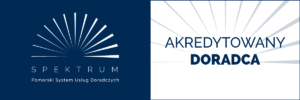Norma ISO 50001 tworzy w organizacji ramy do wdrożenia kompleksowego Systemu Zarządzania Energią. Dedykowana jest ona wszystkim firmom, dla których ważnym czynnikiem jest zoptymalizowany pobór energii, jednak jej implementację...
CSR: społeczna odpowiedzialność biznesu
Społeczna odpowiedzialność biznesu (ang. Corporate Social Responsibility – CSR), to strategia zarządzania, zgodnie z którą przedsiębiorstwa w swoich działaniach dobrowolnie uwzględniają interesy społeczne, aspekty środowiskowe, czy relacje z różnymi...
Innowacyjne projekty ze wsparciem UE/VC
Od kilkunastu lat zajmujemy się poszukiwaniem oraz kreowaniem ciekawych przedsięwzięć inwestycyjnych, a następnie ich komercjalizacją. Interesują nas przede wszystkim projekty innowacyjne, dla których można pozyskać dotacje ze środków unijnych albo od inwestorów...
Wewnętrzny system kontroli eksportu WSK (dual use)
WSK dotyczy podmiotów uczestniczących w międzynarodowym obrocie towarami o znaczeniu strategicznym, czyli towarami podwójnego zastosowania lub uzbrojeniem. Dotyczy to również usług konsultingowych czy serwisowych, świadczonych w zakresie towarów strategicznych...
Bezpieczeństwo danych osobowych RODO
W maju 2018 roku, po dwuletnim okresie przejściowym, weszło w życie RODO, czyli unijne rozporządzenie o ochronie danych osobowych, które nakłada szereg obowiązków na Administratorów danych osobowych (ADO), oraz...
AQAP: System zapewnienia jakości dla dostawców do NATO
AQAP (Alied Quality Assurance Publication) to Publikacja Standaryzacyjna, zawierająca wymagania systemu jakości dostaw dla wojska oraz innych Instytucji Narodowych. Dotyczy dostawców projektujących bądź prowadzących prace rozwojowe i zajmujących się...
System zarządzania BiHP ISO 45001
Wdrożenie systemu zarządzania bezpieczeństwem i higieną pracy, polega na identyfikacji zagrożeń oraz wdrożeniu działań kontrolnych, obniżających ryzyka do poziomu akceptowalnego, a następnie monitorowaniu poziomu bezpieczeństwa.Nadzorowanie ryzyka związanego z wykonywanymi pracami...
System zarządzania bezpieczeństwem w łańcuchu dostaw logistycznych ISO 28000
Łańcuch logistyczny to łańcuch transportowo-magazynowy, który stanowi technologiczne połączenie punktów magazynowych i przeładunkowych drogami przewozu towarów. Poszczególne działania w ramach funkcjonowania łańcucha logistycznego to kolejne etapy całego procesu przepływu...
System zarządzania bezpieczeństwem informacji ISO 27001
Bezpieczeństwo informacji to nie tylko systemy teleinformatyczne. Pojęcie to jest szersze i obejmuje również aspekty prawne oraz zabezpieczenia: organizacyjne, socjotechniczne i fizyczne. Wdrożenie Systemu Zarządzania Bezpieczeństwem Informacji w oparciu...
System zarządzania ciągłością działania ISO 22301
Norma ISO 22301 jest międzynarodowym standardem stanowiącym wymagania dla ustanowienia i zarządzania systemem zarządzania ciągłością działania (BCMS) w każdej organizacji, niezależnie od rozmiaru i rodzaju prowadzonej przez nią działalności....
- 1
- 2


